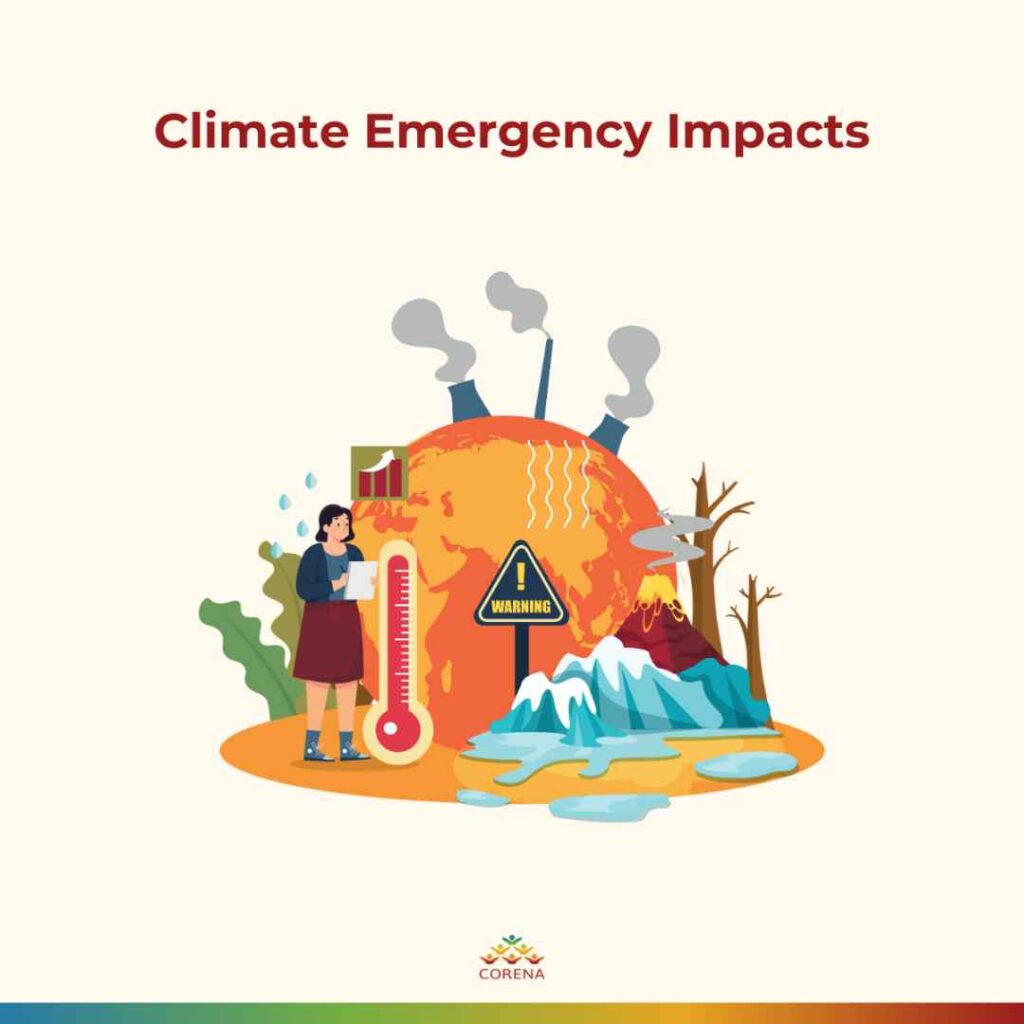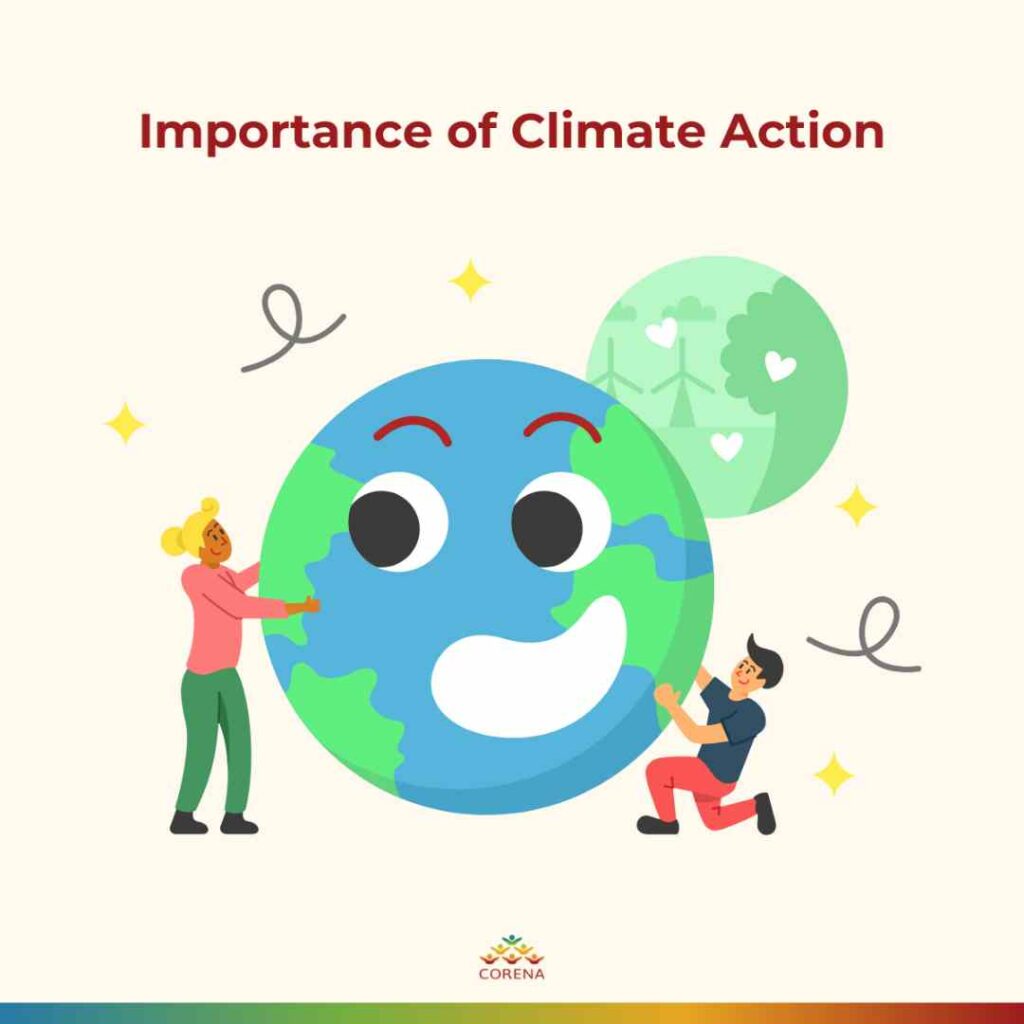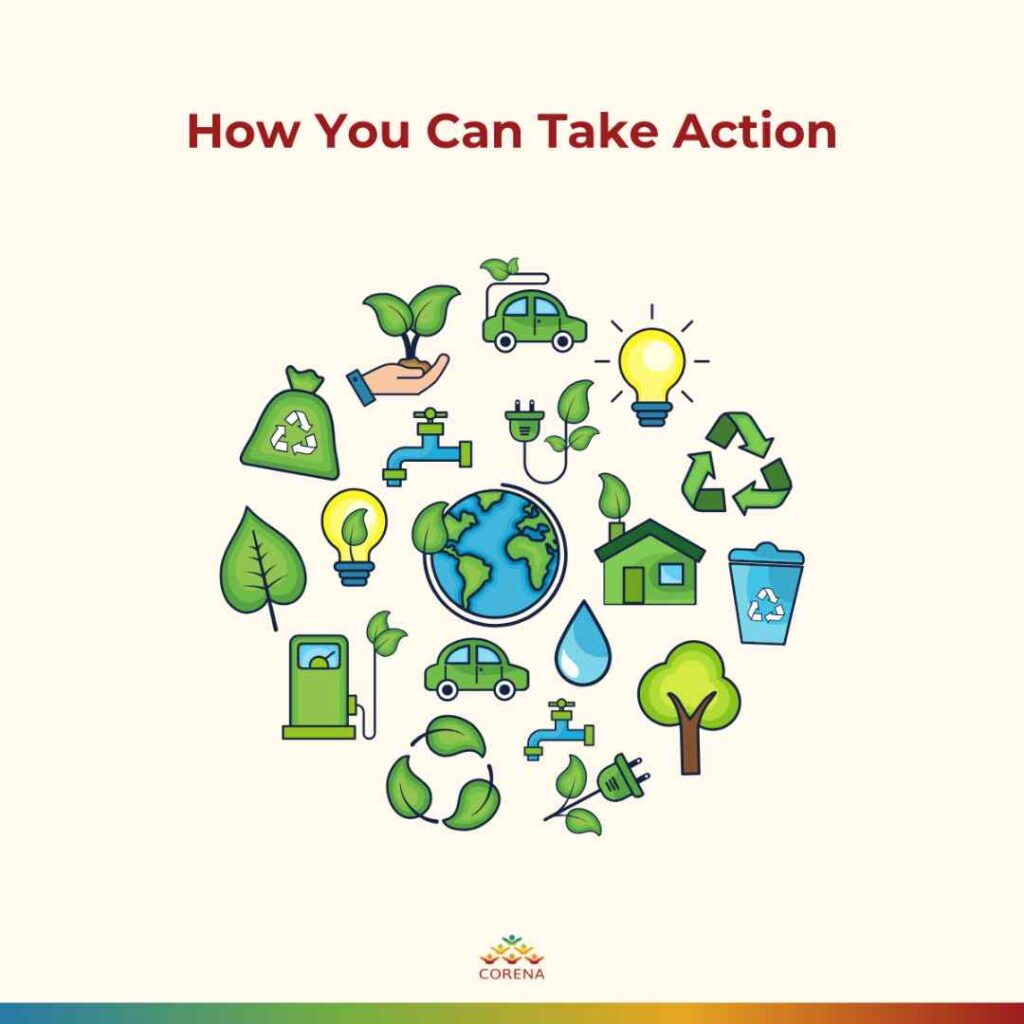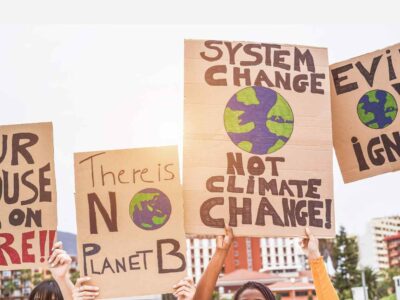Updated: February 2025
We are in a climate emergency and now governments, councils, businesses across the world are recognising it. What does this mean? We’ll unpack it for you
Climate emergency declarations have been made around the world. Declaring an emergency means formally acknowledging the significant impact of carbon emissions on the world’s climate and taking drastic and rapid measures to address it.
Numerous countries have stepped forward to declare a climate emergency and the world is now rallying to address the crisis by taking urgent climate action. By February 2024, as many as 2 355 jurisdictions in 40 countries had declared a climate emergency. This includes parts of Australia, which has declared an emergency 117 times across its various jurisdictions.
Declaring a Climate Emergency
It is absolutely essential that immediate action be taken to combat the climate crisis.
Despite decades of climate warnings from scientists, and climate impacts that are already killing people and ecosystems at a little over 1°C warming, too many of us seem strangely resigned to governments not acting to protect us. We tend to think ‘business as usual’ is more powerful than governments, and that politicians who go ‘too far’ with climate initiatives won’t be re-elected. But our lives are at stake. Who really wants to sit back and watch in resigned horror as humanity heads over a cliff?
CEDAMIA (Climate Emergency Declaration And Mobilisation In Action)
Declaring a climate emergency is a means to raise awareness, mobilise resources, secure funding, and rapidly instigate policy changes at local, national and international levels that will better serve the cause and help to curb further harm.
Recognising the urgency of climate change is paramount. Official declarations compel those in positions of power and influence to take decisive action, allocate the necessary funds and implement measures to reduce carbon emissions and enhance climate resilience.
It requires urgent and massive decarbonisation action around the globe.
What is a Climate Emergency?
Climate change is a direct result of harmful human industrialisation and risks the health of human life as we know it. Activities involving burning fossil fuels to create energy result in carbon emissions. On top of growing greenhouse gas emissions, rampant deforestation and oceanic pollution are only worsening the problem.
The European Union’s Copernicus Climate Change Service found 2023 was 1.48°C warmer than the pre-industrial average, owing to increasing concentrations of greenhouse gases in the atmosphere.
This impacts weather patterns and ecosystems around the globe. Experts universally agree that these trends are severely alarming, with calls to move faster towards more sustainable solutions for society to avert disaster.
Climate Emergency Impacts
Rising temperatures pose various threats to the globe. Among these are ablation (the melting of the polar ice caps), changes in vegetation, and unpredictable weather events. As global warming advances, the frequency of hurricanes, storms, droughts, floods and heat waves will only increase.
These drastic alterations to the planet’s climate are causing irreparable damage to biodiversity, plants, animals, destroying and negatively impacting entire ecosystems and food chains. This disruption causes a wide-scale breakdown of the interconnected functions that make life on our planet thrive.

Climate Hazards & Disasters
Climate hazards are natural events, but climate change means they’re becoming more extreme and more frequent. We’ve always had cyclones, droughts, bushfires, floods, and high winds. But in recent years, we’ve seen a terrifying rise in the scale of destruction they cause.
We’ve witnessed devastating climate disasters around the world, like the Los Angeles, Maui, Australian, and numerous other international wildfires, multiple cyclones and hurricanes, deadly heatwaves in India, Pakistan, and Europe, and flooding in Southeast Asia. Millions of people from Mozambique to Bangladesh have already lost their homes, livelihoods, and loved ones due to these more frequent and dangerous extreme weather events.
What’s causing this increase in weather severity?
As the earth warms due to climate change, this warmer air is able to hold more water vapour. This extra moisture in the atmosphere increases the number of more extreme storms with heavier rainfall and worse flooding.
Climate change also changes the rainfall distribution, with some areas getting drier and others getting wetter. This leads to longer and more severe droughts as well as more intense storms and cyclones. In addition to greater extremes of weather incidents, as the planet warms we are also seeing these extremes of weather happening more frequently.
As global temperatures rise, so do sea levels. This leads to stronger storms with higher wind speeds, more intense and longer droughts and bushfire seasons, heavier precipitation, and worse flooding.
The evidence is clear: climate change is having a devastating impact.
Here are some facts that illustrate the problem:
- The number of climate-related disasters has tripled in the last 30 years.
- Sea level rise is happening much faster now than it did for most of the 20th century.
Every degree of global warming is projected to cause a 7% increase in extreme daily rainfall.
- Climate change forces more than 20 million people from their homes every year.
- The UN estimates that developing countries will need to spend $140-300 billion per year by 2030 just to adapt to climate change and deal with the damage it causes.
We also stand to suffer through the social and economic consequences of extreme weather events, not to mention the real and present threat to public health. Rising sea levels and unpredictable weather patterns can cause untold devastation and social, financial and economic upheavals, particularly in regions populated by low-income and vulnerable people.
The impacts of climate change risk further exacerbating social inequalities and economic disparities. Disproportionate impacts on vulnerable populations and marginalised communities can be expected. Countries with limited resources will most likely be hit hardest.
Climate change impacts everyone, but not equally. While extreme weather events affect all nations, the burden falls disproportionately on the world’s poorest populations. This raises critical questions of justice, as those least responsible for the climate crisis are often the hardest hit.
For example, people in poorer countries are five times more likely to be displaced by extreme weather events than those in wealthier nations. This displacement, along with other climate change impacts, exacerbates existing poverty and increases food insecurity.
Addressing this inequity requires urgent action. The world must accelerate efforts to reduce carbon emissions and provide support to vulnerable communities already experiencing the effects of climate change, which are projected to intensify in the future.
Importance of Climate Action
Climate change is a serious threat, but there are things we can do to address it. We need to take action to reduce greenhouse gas emissions and transition to renewable energy sources. By working together, we can create a more sustainable future for our planet.
In the face of this massive challenge, it can feel overwhelming. But as human beings, we all have the responsibility to play a role in tackling the climate emergency. If enough people band together, implement solutions, and call for change, small combined efforts can make a huge difference.
Systemic change can stem from individual actions that drive large-scale efforts. The uptake of rooftop solar is an example of this. Rooftop solar installed by homes and businesses is setting new records every year, reducing emissions, and driving the renewable energy transition.
All in all, taking action as an individual fosters a sense of empowerment and agency that each person can play a part in changing the world for the better. The cumulative movement towards minimising waste and making more sustainable choices can result in a significantly reduced climate change impact.

How You Can Take Action & Help
Dr Saul Griffiths, author of the Big Switch, states that by far the biggest source of carbon emissions in Australia, 78.3%, is fuel and electricity consumption used in our homes and businesses. By electrifying everything, massively increasing renewable energy generation and getting off fuel and gas the world can make the large initial cuts needed to reach the IPCC goals while buying us some time to develop carbon capture technologies that are needed to limit warming. You can also reduce consumption and boost energy efficiency by installing all-electric appliances such as green water heating, heat pumps, induction stovetops and LED light bulbs. Ensuring your home and workplace are properly insulated can also help to reduce heating and cooling requirements.
Installing solar panels or switching to other forms of renewable electricity helps to reduce dependence on fossil fuels for power. Not only does this reduce carbon emissions, but can also reduce the cost of electricity for individuals and organisations alike.
Fossil fuels in the form of petrol and gasoline fuel internal combustion engines, which also significantly contributes to CO2 emissions. Therefore, switching over to more sustainable transportation options like electric vehicles can go a long way towards reducing emissions.
Communities can even band together to explore ways to set up and leverage community renewable energy projects.
The key is to ensure that you get educated and become well-informed so that you can help spread the word and play a more productive and supportive role in tackling the climate emergency.
If your organisation would like to declare a Climate Emergency the CEDAMIA website is a great resource to get you started.

Donate to a Renewable Energy & Climate Charity
The CORENA vision is a world in which everyone who wants a safe climate is empowered to help achieve it.
Our goal is to provide a simple mechanism that enables everyone to help collectively achieve prompt and tangible climate outcomes.
We organise practical projects that achieve carbon emission reductions that would otherwise be unlikely to occur, and to invite everyone to chip in to collectively pay for the project costs.
We choose projects that not only reduce carbon emissions cost-effectively but also reduce operating costs. This means that an interest-free loan is sufficient to enable a project to proceed and the resultant savings on operating costs cover the loan repayments back into our revolving fund.
The revolving fund is a key element in our approach. It means that the money donated to projects continues to achieve climate benefits far into the future.
Our fund ensures that these kinds of climate projects get the funding that they need in order to get off the ground and become part of the renewable energy transformation.
Donating to CORENA is an easy way to personally contribute to addressing the climate emergency. Join Australia’s renewable energy revolution and help to finance projects in your community by donating to our revolving fund. Your donation will be used over and over again helping communities reduce their carbon emissions.

